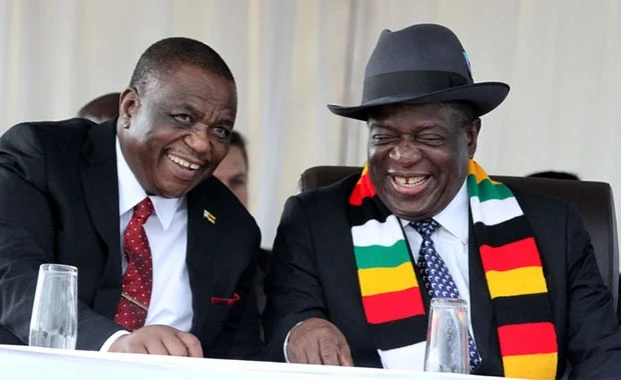The United Kingdom has announced its first designations under the UK’s Zimbabwe Autonomous Sanctions Regime, targeting four senior security officials accused of serious human rights violations. The move comes in response to state-sponsored crackdowns on protests in 2018 and 2019 that left at least 23 Zimbabweans dead.
Foreign Secretary Dominic Raab confirmed the sanctions, which include travel bans and asset freezes against the officials. These measures prevent them from entering the UK, using UK financial systems, or benefiting from the UK economy.
Officials Named in the Sanctions
The four sanctioned individuals are:
- Owen Ncube – Minister for State Security
- Isaac Moyo – Director General of the Central Intelligence Organisation
- Godwin Matanga – Commissioner General of the Zimbabwe Republic Police
- Anselem Sanyatwe – Former Brigadier General, Commander of the Presidential Guard and Tactical Commander of the National Reaction Force
According to the UK government, these figures were directly responsible for excessive use of force against civilians during political unrest.
Linked to Deadly Crackdowns
The Motlanthe Commission Report found that Zimbabwean security services were responsible for the deaths of six people and injuries to 35 others during post-election protests on August 1, 2018. The report concluded that the use of live ammunition on unarmed civilians was “clearly unjustified and disproportionate.”
Similarly, the Zimbabwe Human Rights Commission reported that during the January 2019 fuel protests, security forces used “brute, excessive and disproportionate force,” resulting in 17 deaths. Witnesses and human rights groups also documented incidents of rape, arbitrary arrests, and door-to-door raids during the crackdown.
UK’s Message to Zimbabwe
In his statement, Dominic Raab said:
“These sanctions send a clear message that we will hold to account those responsible for the most egregious human rights violations, including the deaths of innocent Zimbabweans. These sanctions target senior individuals in the Government, not ordinary Zimbabweans.”
Raab reaffirmed the UK’s commitment to encouraging democratic reforms in Zimbabwe, stressing that the sanctions are not intended to harm the country’s economy or its citizens.
Independent Sanctions Policy
The sanctions are the first imposed under the UK’s independent Zimbabwe regime, which came into effect on 31 December 2020 following Brexit. The policy allows the UK to apply targeted measures in line with its foreign policy and national security interests.
The UK Zimbabwe Autonomous Regime includes:
-
Targeted travel bans and asset freezes
-
Trade restrictions on military equipment and items that could be used for internal repression
This is separate from the Global Human Rights Sanctions Regulations 2020, which address global abuses beyond Zimbabwe.
Continued UK Support for Zimbabweans
The UK government emphasised that it will continue to provide humanitarian assistance and development aid directly to the Zimbabwean people, without going through government channels. Support focuses on poverty reduction, human rights protection, and recovery from the COVID-19 pandemic.
UK officials also noted that investors remain concerned about Zimbabwe’s economic climate, citing issues such as currency instability, arbitrary property rights, and weaknesses in the legal system as greater deterrents to investment than sanctions.






